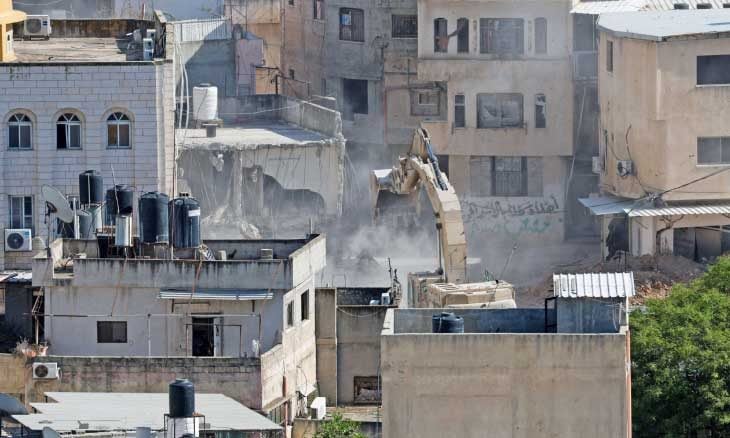RAMALLAH, November 11, 2014
(WAFA) – As Tuesday marks the 10th anniversary of the death of late Palestinian
leader Yasser Arafat, president Mahmoud Abbas addressed the thousands of
Palestinians who participated in commemoration rallies across the West Bank,
affirming that Jerusalem will remain the eternal capital of Palestine.
Abbas addressed
the thousands of Palestinians who gathered at the Presidential headquarters in
Ramallah to mark Arafat’s death, stressing that, ‘we’ will head to all
international organizations despite all pressures to insure the protection of
the Palestinian people and their holy sites, stressing that Israel’s assaults
on al-Aqsa mosque will only lead to a religious war.
Abbas’ statement on Jerusalem
came days after a spike in violence was witnessed in East Jerusalem, the West
Bank and Israel following a surge in Jewish settlers’ provocative visits to
al-Aqsa Mosque compound in Jerusalem, the third holiest place in Islamic
doctrine.
He stressed that ‘we’ are
preparing a draft resolution to be submitted at the United Nation Security
Council to end the Israeli occupation and arrive at an independent state
of Palestine with East Jerusalem as its capital.
Late leader Yasser Arafat,
officially named Mohammed Yasser Abdel Rahman Arafat al-Qudwa, is
revered by a great margin of the Palestinian people as the father of the
Palestinian Revolution of 1965 and the modern Palestinian movement.
The Egypt-educated deceased
leader co-founded the Fatah Movement in the 1950s and became its official
spokesman in 1968. In February 1969, Arafat was elected a president of the
Palestine Liberation Organization, PLO.
In the summer of 1982, Israel
waged a war on Lebanon with a declared aim of evicting the PLO’s presence in
the country. Arafat and other PLO fighters were trapped in the capital Beirut
for around four months before an international intervention allowed them to
relocate to Tunisia.
In 1988, and during a PLO
periodical meeting in Algiers, the exiled leader announced the independence of
the State of Palestine. During the same year, Arafat addressed the UN General
Assembly on a new Palestinian initiative for achieving just peace in the Middle
East.
In September 1993, Arafat and
late Israeli PM Yitzhak Rabin signed the Oslo Accords in the White House of
Washington, under which partial Palestinian control of certain areas in the
West Bank and Gaza was to set forth. Consequently, PLO officials, including
Arafat, returned to the West Bank and Gaza.
The leader was later elected
president of the Palestinian National Authority in 1996.
The failure of Camp David
negotiations in 2000 due to the Israeli intransigence and Arafat’s commitment
to the Palestinian rights, gave rise to the second Palestinian uprising that
was known as the “Second Intifada” or “Intifadat al-Aqsa.”
As a result, Arafat remained
under Israeli siege for the last three years of his life, before he died on
November 11, 2004 at a French military hospital outside Paris.
Following Arafat’s death, the
Palestinian committee investigating his death accused Israeli of poisoning him,
and demanded an international investigation into his death.
Swiss, Russian and French
forensic experts took samples of Arafat’s remains after exhuming his body on
November 27 of last year.
Swiss pathologists said that
traces of radioactive element polonium were found, proving that he was
poisoned, while French investigations into the matter said the traces found
were not enough to cause his death, maintaining that his death was due to “natural
causes.”
Despite investigations into his
death, the death of the late Palestinian leader, Yassir Arafat, remains a mystery.
M.N./T.R.










